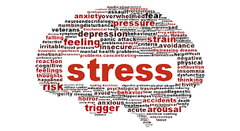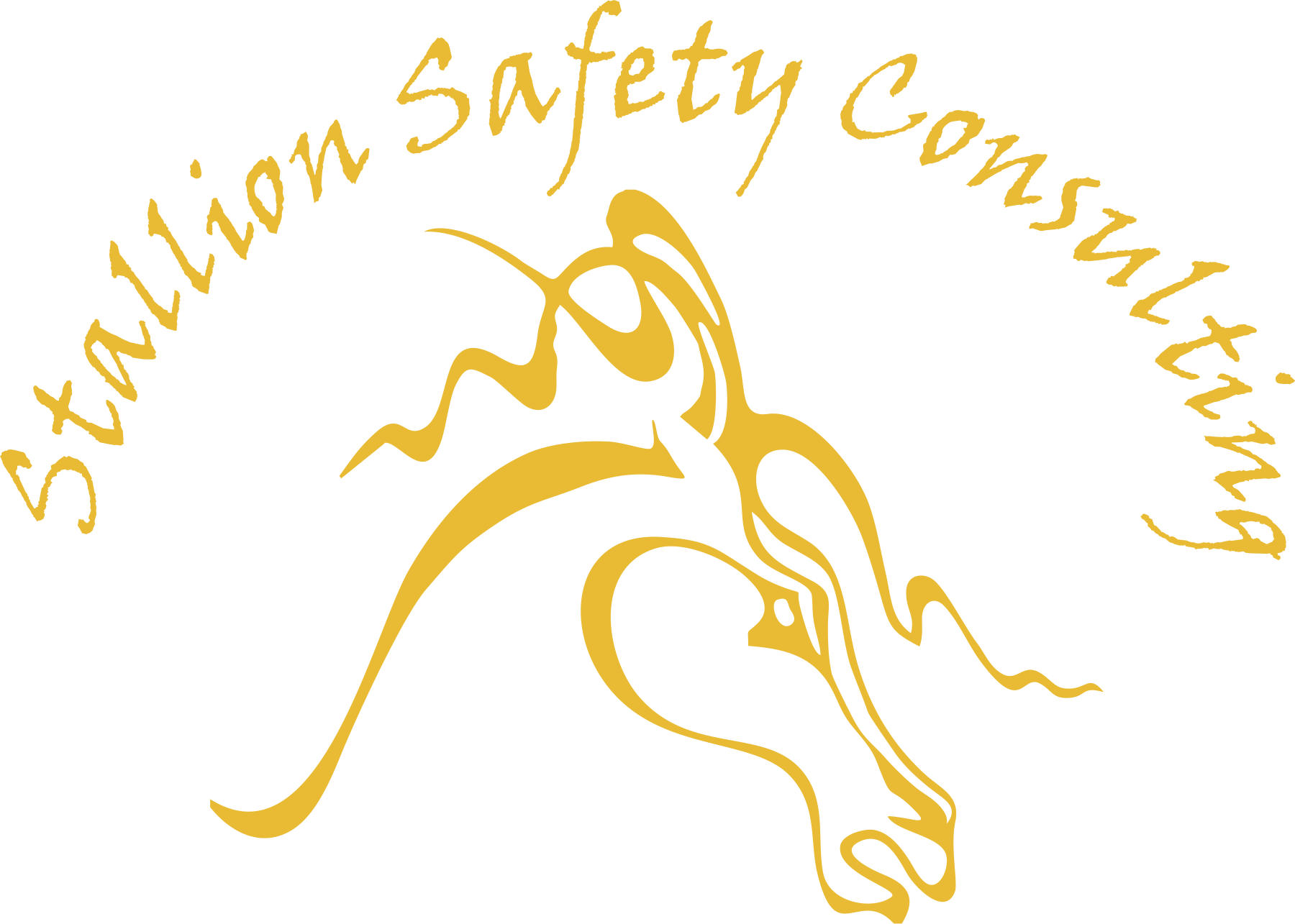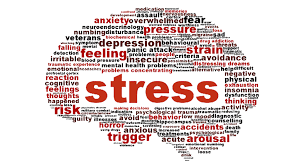tress has been defined as “a state of mental or emotional strain or tension resulting from adverse or very demanding circumstances.” We experience stress, or perceive things as threatening, when we do not believe that their resources for coping with these obstacles are enough for what the circumstances demand. I think we can all agree that we are in a stressful time right now.

 Stress is the body’s reaction to any change that requires an adjustment or response. The body reacts to these changes with physical, mental, and emotional responses. Stress is a normal part of life. You can experience stress from your environment, your body, and your thoughts
Stress is the body’s reaction to any change that requires an adjustment or response. The body reacts to these changes with physical, mental, and emotional responses. Stress is a normal part of life. You can experience stress from your environment, your body, and your thoughts
As we direct ourselves through the of COVID-19 pandemic, we are experiencing a new “normal”. This new “normal” seems so foreign to us. This new “normal” has brought new stressors into our lives; Some are working from home, some are not able to work at all, some have become home-school teachers, we all have been isolated from family and friends. Developing new routines for ourselves and our families has been a challenging.
So what happens when we are stressed…..
When you encounter a perceived threat — such as a large dog barking at you during your morning walk — your hypothalamus, a tiny region at your brain’s base, sets off an alarm system in your body. Through a combination of nerve and hormonal signals, this system prompts your adrenal glands, located on top of your kidneys, to release a surge of hormones, including adrenaline and cortisol.
Adrenaline increases your heart rate, elevates your blood pressure, and boosts energy supplies. Cortisol, the primary stress hormone, increases sugars (glucose) in the bloodstream, enhances your brain’s use of glucose and increases the availability of substances that repair tissues.
Cortisol also curbs functions that would be nonessential for the situation. It alters immune system responses and suppresses the digestive system, the reproductive system and growth processes. This complex natural alarm system also communicates with the brain regions that control mood, motivation, and fear.
This combination of reactions to stress is also known as the “fight-or-flight” response because it evolved as a survival mechanism, enabling us to react quickly to life-threatening situations. All these changes happen so quickly that people aren’t aware of them. In fact, the wiring is so efficient that the brain starts this change even before we have had a chance to fully process what is happening.
Unfortunately, the body can also overreact to stressors that are not life-threatening. Our brain and body will perceive a small threat/stimulus like a work deadline the same way it would as a threat of someone pointing a gun at you.
Our bodies are designed to handle small doses of stress. But we are not equipped to handle long-term, chronic stress, without ill consequences.
Chronic Stress
The body’s stress-response system is usually self-limiting. Once a perceived threat has passed, hormone levels return to normal. As adrenaline and cortisol levels drop, your heart rate and blood pressure return to baseline levels, and other systems resume their regular activities.
But when stressors are always present and you constantly feel under attack, that fight-or-flight reaction stays turned on.
The long-term activation of the stress-response system and the overexposure to cortisol and other stress hormones that follows can disrupt almost all your body’s processes. This puts you at increased risk of many health problems including:
- Becoming easily agitated, frustrated, and moody
- Feeling overwhelmed, like you are losing control or need to take control
- Low energy
- Headaches
- Aches, pains, and tense muscles
- Chest pain and rapid heartbeat
- Insomnia
- Frequent colds and infections
- Loss of sexual desire and/or ability
- Forgetfulness and disorganization
- Inability to focus
- Poor judgment
- Depression
- Anxiety
- Increased use of alcohol, drugs, or cigarettes
We have included two surveys for your use to find the level of stress that you are under. These surveys can show the areas where you may struggle with coping. So please be honest while completing them.
Personal Stress Evaluation
Work Stress Evaluation
How to Cope with Stress….
Awareness
The best thing you can do to prevent stress overload and the health consequences that come with it is to know your stress symptoms. Do you become agitated & angry when faced with stress? Do you withdrawal? Do you procrastinate on projects that you find challenging?
Once you start to see your symptoms of stress, you will be able to counteract and correct your reaction to the stress. This awareness allows you to recognize you are stressed and you need to cope with the stressor.
Breathing & Relaxation techniques
The way you breathe affects your whole body. Deep breathing is one of the best ways to lower stress in the body. This is because when you breathe deeply, it sends a message to your brain to calm down and relax. The brain then sends this message to your body. All those things that happen when you are stressed, such as increased heart rate, fast breathing, and high blood pressure, all decrease as you breathe deeply to relax.
Breathing exercises are easy to learn. You can do them whenever you want, and you do not need any special tools or equipment to do them.
-
 Sit or lie flat in a comfortable position.
Sit or lie flat in a comfortable position. - Put one hand on your belly just below your ribs and the other hand on your chest.
- Take a deep breath in through your nose, and let your belly push your hand out. Your chest should not move.
- Breathe out through pursed lips as if you were whistling. Feel the hand on your belly go in and use it to push all the air out.
- Do this breathing 3 to 10 times. Take your time with each breath.
- Notice how you feel at the end of the exercise.
Other relaxation techniques are yoga, massage, and meditation. All these techniques are easily accessible. There are numerous apps for mediation on your phone to use such as Headspace and Calm. YouTube has many free yoga & mediation classes. I have included some links to some of the popular channels.
Yoga With Adriene
Boho Beautiful
Luluemon
Support Network
A strong social support network can be critical to help you through the stress of tough times, whether you have had a bad day at work, or a year filled with loss or chronic illness. It provides the comfort of knowing that your friends & family are there for you if you need them. A coffee break with a friend at work, a quick chat with a neighbor, a phone call to your sibling, a visit to a house of worship or volunteer work are all ways to develop and foster lasting relationships with others.
There is also option for a support group, which is generally a structured meeting run by a leader or mental health professional. There is also the option of Facebook groups, group chats if you do not feel comfortable taking to your family & friends.
Remember that a goal of building your social support network is to reduce your stress level, not add to it. Watch for situations that seem to drain your energy. For example, avoid spending too much time with someone who is constantly negative and critical. Similarly, steer clear of people involved in unhealthy behaviors, such as alcohol or substance abuse.
Exercise
Virtually any form of exercise, from aerobics to yoga, can act as a stress reliever. Regular exercise (30 Mins X 3 weeks) can increase self-confidence, it can relax you, and it can lower the symptoms associated with mild depression and anxiety. Exercise can also improve your sleep, which is often disrupted by stress, depression, and anxiety. All these benefits can ease your stress levels and give you a sense of command over your body and your life. As you begin to regularly shed your daily tensions through movement and physical activity, you may find that this focus on a single task, and the resulting energy and optimism, can help you remain calm and clear in everything you do.
There are many You tube channels that offer free workouts from beginner to intermediate. I have attached links to the most popular channels.
Seeking Professional Counseling

If you are unable to reduce your stress or prevent future stressful episodes despite your best efforts, ask your doctor for a referral to a mental health specialist who treats anxiety and stress.
It is important to recognize the role a professional’s help can play in conquering stress and anxiety. They can help you find ways to reduce the impact stress has on you. They might suggest meditation, visualization, or talk therapy. These techniques allow you to reduce your stress load while counteracting any negative physical impacts.
Resources
Alberta Health Services
Adult Addiction and Mental Health Services-Alberta
Mental Health Helpline
1-877-303-2642 (24/7)
Notice
Information on the website in no way replaces the opinion of a health professional. If you have questions concerning your health status, consult a professional.


 Sit or lie flat in a comfortable position.
Sit or lie flat in a comfortable position. CAD
CAD USD
USD
I had almost given up on losing weight until I discovered this amazing product. It helped me go from 100kg to a stunning 70kg. Don’t miss out on this life-changing opportunity – click here to order now and embark on your transformational journey!
I had almost given up on losing weight until I discovered this amazing product. It helped me go from 100kg to a stunning 70kg. Don’t miss out on this life-changing opportunity – click here to order now and embark on your transformational journey!
Great job on your blog post! It was informative and I appreciated the practical examples you provided. To explore this topic further, click here. Thank you for sharing your knowledge!
I struggled with my weight for years until I found this incredible weight loss product. From 110kg to a fit and fabulous 70kg, it truly works wonders. Say hello to a happier, more confident you – click here to get started!
Living with diabetes is less daunting thanks to this innovative product. It’s a reliable companion that helps me stay on track with my health and well-being. click here to take control of your diabetes!
Showing: 1-5 of 14